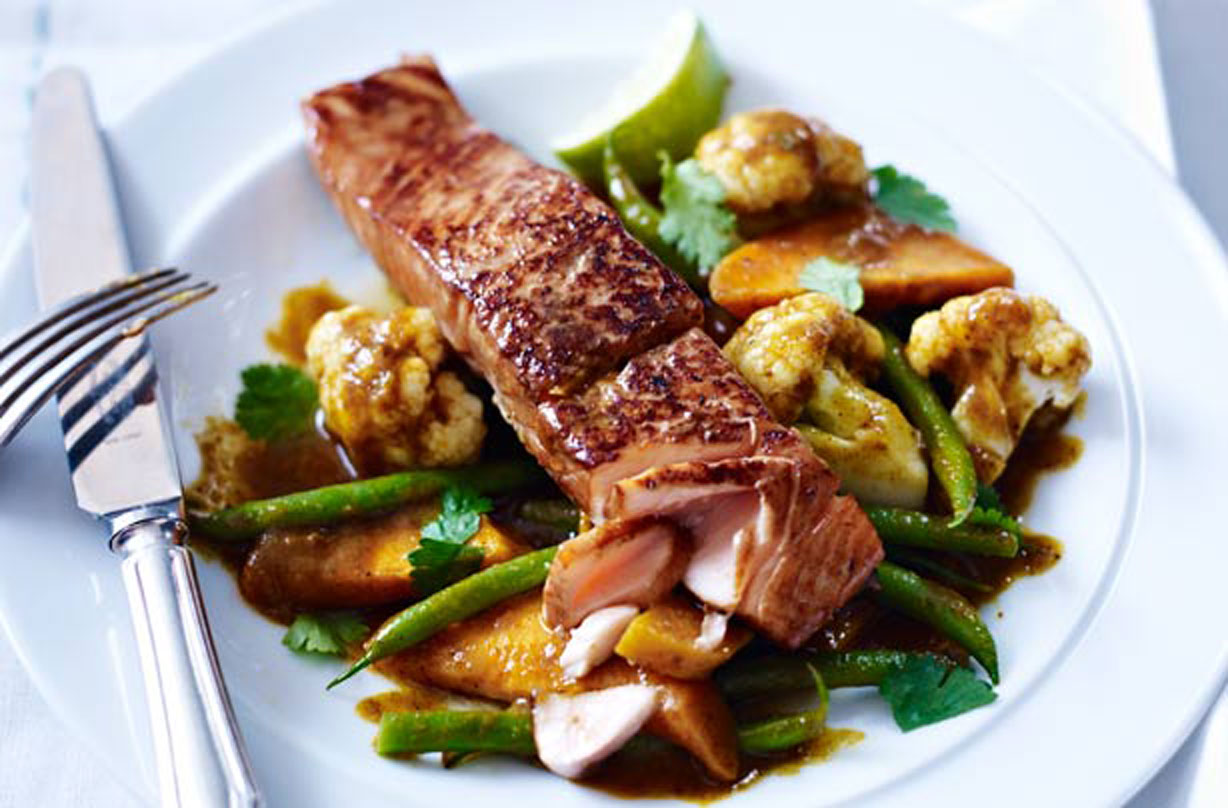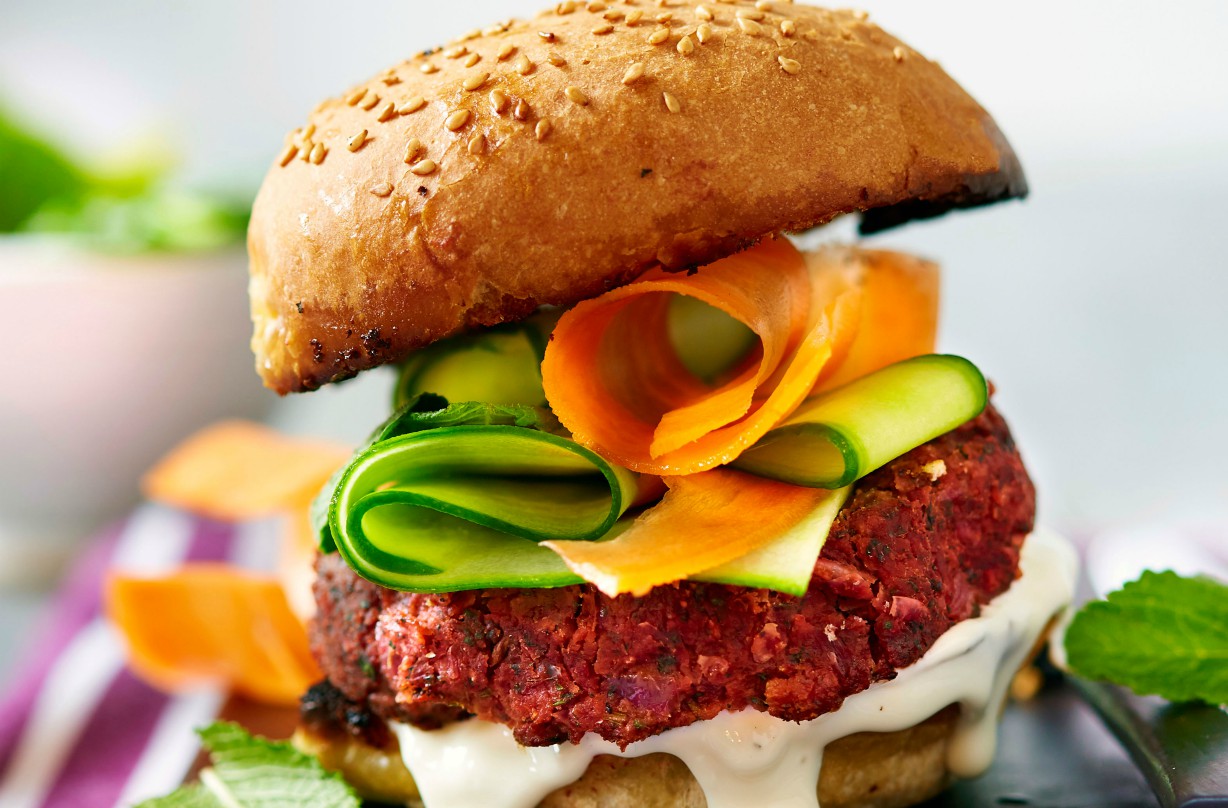Healthy heart: Eat your way to a healthy heart with these foods

Many of us don't give much thought to our hearts. But it's a good time to start thinking about ways to maintain a healthy heart for later in life. Include these 12 foods in your diet and your heart will thank you.
A healthy heart is linked to what you eat, says nutritionist Rob Hobson.
‘Eating a Mediterranean-inspired diet, foods high in fibre (fruit, veg, pulses, lentils) and healthy fats (olive oil, nuts, seeds, avocados) as well as lean meats, low-fat dairy and oily fish, will benefit the heart.
‘Portion control to keep to a healthy weight is also key. Excess fat can lead to inflammation, also thought to be at the root of many health conditions.’
So try incorporating these delicious dozen in your diet…
Healthy heart foods
Wholegrains
Think brown rice and wholewheat pasta and bread. Anything high in fibre can boost your heart by helping lower cholesterol and promoting the most diverse gut microbiome, responsible for helping to maintain a healthy weight. Fruit and veg are also great for fibre, so be sure to take that ‘eat a rainbow’ advice to heart.
Apples
There may be truth in the old adage, an apple a day keeps the doctor away. Fruit is a crucial part of a healthy diet and it seems apples are great for a healthy heart, too. Studies show that apples can reduce LDL (bad) cholesterol levels. Too much of these non-high-density lipoproteins can cause blood vessels to become blocked and stiff, leading to a heart attack or stroke. Apples are high in heart-boosting fibre and pectin, believed to help weight control by making you feel fuller for longer.
GoodtoKnow Newsletter
Parenting advice, hot topics, best buys and family finance tips delivered straight to your inbox.
Water
Drink lots of water and use it to dilute fruit juice, which can be high in sugar. And, if you really want a healthy heart, cut back on booze. Drinking over the recommended maximum of 14 units a week damages the heart, can cause abnormal heart rhythms and high blood pressure. Have at least two alcohol-free days a week and don’t binge drink. ‘It can cause your blood pressure to rise very quickly,’ says Claire. Over six units – two 250ml glasses of 14% ABV wine – in one go is considered a ‘binge’.
Oily fish
Aim for a portion a week (140g of cooked fish) to make the most of heart-healthy, omega-3 fatty acids. They can help prevent heart disease and lower blood pressure. But you’re advised not to eat too much, as oily fish can contain low levels of pollutants, which can build up in the body. Try salmon, sardines, trout, mackerel, pilchards, herring and sprats.

Walnuts
They’re high in heart-protecting omega-3s and mono-unsaturated fats (other good sources are avocados and olive oil), which in small amounts provide essential fatty acids and fat-soluble vitamins. All nuts are good for a healthy heart, but not more than a handful a day as they’re high in calories and being overweight increases your risk of heart disease and high blood pressure. The way you carry extra weight is also important, says Claire Shuttleworth, Stroke Prevention Manager at the Stroke Association. ‘If you carry it around your waist, you’re more likely to have high blood pressure, diabetes or other health issues. Talk to your GP about the weight you should be – it’s different for everyone.’
Beetroot
Beetroot (including juice and processed beets) is full of dietary nitrate, which research suggests can widen arteries, improving blood flow and reducing your risk of high blood pressure. Left untreated high blood pressure increases your risk of heart attack and stroke. Around seven million of us have it without knowing. ‘It tends to rise as we get older and often there are no symptoms,’ says Dr Mel. ‘So it’s important to make sure you get tested regularly and take steps to keep it at a healthy level.’ Did you know? Green leafy veg is also high in nitrate.
Chocolate
Yes, really! But stick to at least 70 per cent chocolate solids. The darker it is, the better it is for you. Studies, including the most recent from California’s Loma Linda University, show dark chocolate boosts the cardiovascular system, by increasing blood flow and reducing inflammation. Cacao is rich in flavanols – antioxidants found in fruit and veg – which help fight inflammation that causes heart disease and other conditions.

More fruit and veg
At least five a day is crucial to a healthy heart specifically. It’s not just the amount, but the variety – the more variety, the greater the benefits. Try to ‘eat the rainbow’. Include…
- Citrus fruits - Contain antioxidants and flavones to boost circulation.
- Tomatoes- Can lower risk of stroke by up to 20 per cent.
- Blueberries- Research by Florida State University found a daily handful lowered blood pressure in middle-aged women by 6 per cent.
- Onions and garlic- They’re packed with polyphenols and blood-thinning compounds triggered when chopped, crushed or grated. Garlic is thought to help lower blood-pressure.
Herbs and spices
They’re a great way to add flavour in place of salt. Too much salt raises blood pressure and therefore the risk of coronary heart disease and stroke. Your daily limit is one teaspoon (6g) but most of us have more. ‘Much of the salt we eat is hidden in processed foods, like ready meals, crisps, biscuits and processed meats,’ says Dr Melanie Wynne-Jones. Cut back on these and explore herbs and spices for cooking.
White fish
Like oily fish, aim for one portion a week. White fish is one of the healthier, low-fat alternatives to red or processed meat, which tends to be higher in saturated fat, levels of which you should reduce to help protect your heart. Steam, bake or grill fish – don’t fry, as this can increase the fat content. Try cod, haddock, plaice, pollock, sea bass, seabream and halibut.
Oats
Full of beta-glucan, a soluble fibre, which studies show reduce cholesterol. Oats are a wholegrain which have also been shown to protect your heart by lowering blood pressure.
Beans
Beans and legumes are great meat-free protein sources and their fibre may help reduce the risk of heart attack. They’re cholesterol-free, low in fat and rich in iron, zinc and folate. Choose lower-salt canned beans and wash well to reduce salt intake.
What else can you do to maintain a healthy heart?
While you're introducing foods into your diet to maintain a healthy heart, have a think about the foods which are bad for your body.
Bad fats, hydrogenated fats and saturated fats can be found in foods such as cakes, biscuits, red meat, pies, pastries, and full-fat diary products.
Be honest about your eating habits and your weight. Weigh yourself, check your BMI and start a food diary, so you can analyse exactly what you’re eating. Plus we’ve got loads of easy diets plans and easy exercise ideas to help you get started.
You can also try and manage your stress levels. Take a look at our stress management and relief tips and see how stress is affecting your general health.
If you're a smoker, think about trying quit or limit the amount of cigarettes you consume each day.
And, make sure you have routine checks with your GP to examine your blood pressure, cholesterol levels and diabetes.
This article was initially published in Women's Weekly